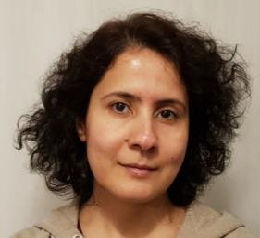International Women's Forum
THEME: "Breaking Barriers, Shaping the Future of Women"
 27-28 Mar 2024
27-28 Mar 2024  Barcelona, Spain (29th Virtual)
Barcelona, Spain (29th Virtual) THEME: "Breaking Barriers, Shaping the Future of Women"
 27-28 Mar 2024
27-28 Mar 2024  Barcelona, Spain (29th Virtual)
Barcelona, Spain (29th Virtual) 
Reutlingen School of Theology, Germany
Title: Religion, Emotion and Self-Empowerment
Marziyeh Bakhshizadeh, Professor of Theories, Methods and Concepts in the Context of Social Diversity in the Social Work program at Reutlingen School of Theology. She studied sociology in Tehran and did her doctorate at Ruhr University Bochum on women's rights in different interpretations of Islam in Iran after the 1979 revolution. Her special interests in research and teaching are the sociology of emotions, the sociology of religion and especially human and women's rights in Islamic societies and cultures.
The relationship between emotions and self-empowerment in women is a complex and multifaceted one, often shaped by societal, cultural, and individual factors. Empowerment refers to the process of gaining control over one's life, making choices, and building self-esteem and self-confidence. Emotions, on the other hand, are the affective states that influence our thoughts, behaviors, and decision-making. Understanding how these two elements are interrelated is crucial in fostering women's empowerment.
Here, religion plays a complex and essential role in the relationship between women's emotions and self-empowerment. It varies widely depending on the specific religious beliefs, practices, and cultural contexts. Religion can impact this relationship in several ways:
1. Value Systems and Norms: Many religious traditions have specific value systems and norms that can influence the emotional experiences of women.
2. Community and Support: Religious communities often provide social support networks that can be both empowering and emotionally nurturing.
3. Coping Mechanisms: Religion can serve as a coping mechanism for women when dealing with difficult emotions and challenging life situations. Prayer, meditation, and religious rituals can provide a sense of solace and emotional strength, enabling women to navigate adversity and work towards self-empowerment.
4. Interpretation and Adaptation: It is essential to recognize that individuals within a religious community can interpret and adapt religious teachings to align with their personal beliefs and goals. Women may draw on their religious faith to find inspiration and motivation for self-empowerment, even within religious traditions that may initially seem constraining.
As a socio-pedagogical counsellor and social worker for refugees, I have had the opportunity to offer empowerment workshops for female Muslim refugees in Germany, focusing on different emotions. In this paper, I try to discuss some of the insights I gained during these workshops through group interviews with women.